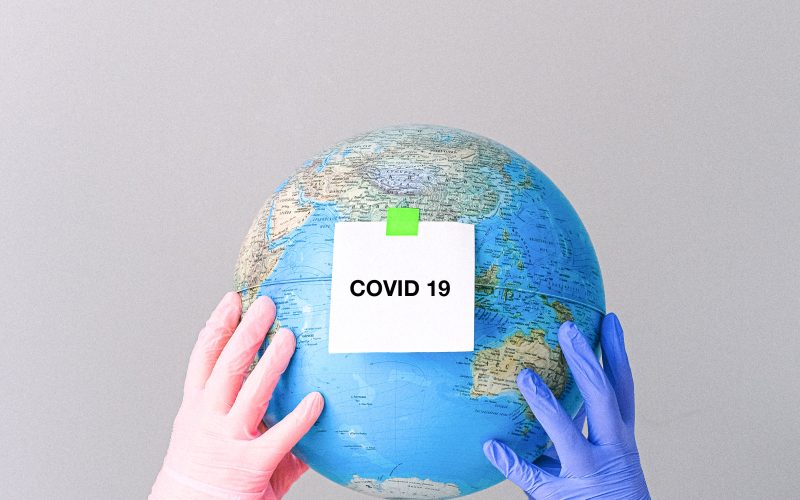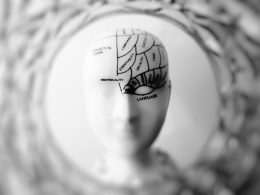The Covid-19 pandemic has affected the world in ways we could never have imagined. While countries around the globe were struggling to contain and report on the virus, one nation stands out for its disturbing approach to censorship: China. The Chinese government’s tactics of censoring, revising, and erasing information about Covid-19 have left many wondering about the true reality of what happened in Wuhan and beyond. In this blog post, we’ll explore how Chinese authorities responded to Covid-19, how journalists reacted to censorship, and how social media played a role in revealing what was really happening on the ground. Get ready as we uncover the dark truth behind Chinese censorship during a global crisis.
Background of Covid-19
In late 2019, a new virus was discovered in Wuhan, China. It was initially referred to as the “Wuhan virus,” but later renamed Covid-19 by the World Health Organization. The virus quickly spread across China and eventually made its way around the world.
Covid-19 is highly contagious and can lead to severe respiratory illness or even death. Symptoms include fever, coughing, and difficulty breathing. To slow down the spread of the virus, many countries implemented strict lockdowns and social distancing measures.
The origin of Covid-19 is still unknown, but it’s believed to have originated in bats before jumping to humans through an intermediate host such as pangolins. There are many theories about how it first emerged in Wuhan’s Huanan Seafood Wholesale Market and whether there were cases that went unreported.
Regardless of its origins, Covid-19 has had a profound impact on global health systems, economies, and people’s daily lives. As we continue to navigate this pandemic together, understanding its background is crucial for developing effective strategies to combat it moving forward.
Chinese Authorities Respond to Covid-19
The Chinese government’s response to the Covid-19 outbreak has been a subject of much scrutiny and controversy. Initially, authorities were accused of downplaying the severity of the virus and silencing whistleblowers who tried to sound the alarm. However, as the outbreak escalated, officials took swift action in an effort to contain its spread.
The city of Wuhan was placed under lockdown on January 23rd, with other cities soon following suit. The government also mobilized medical resources from across China to help treat those infected with Covid-19 in Hubei province.
The central government developed a comprehensive strategy for managing the pandemic that included mass testing, contact tracing and quarantine measures. They implemented strict travel restrictions both domestically and internationally.
While some have criticized China’s initial mishandling of information related to Covid-19, it is important to acknowledge their subsequent efforts once they recognized how serious a threat it posed. The country was able to slow down transmission rates significantly within months after becoming one of the first countries affected by this global pandemic.
Chinese Journalists React to Covid-19
Chinese journalists played a crucial role in reporting the Covid-19 outbreak. However, many of them faced censorship and restrictions on their coverage of the virus. In December 2019, Wuhan-based journalist Zhang Zhan was detained by Chinese authorities for “picking quarrels and provoking trouble” after she reported on the early stages of the pandemic.
Other journalists also faced harassment and intimidation from local officials when trying to report on Covid-19 cases in their area. The lack of transparency from Chinese authorities made it difficult for journalists to provide accurate information about the virus.
Despite these challenges, some Chinese journalists continued to report on Covid-19 with determination and bravery. They risked their own safety to inform the public about the severity of the outbreak and its impact on people’s lives.
Many international media outlets have praised these brave reporters for their commitment to journalism during such a challenging time. Their stories inspire us all to value press freedom as an essential component of democracy, where truth overcomes censorship and propaganda at any cost.
Chinese Social Media Reacts to Covid-19
Chinese social media played a significant role in sharing information about Covid-19, despite the government’s heavy censorship. In the early days of the outbreak, many Chinese citizens took to social media platforms like WeChat and Weibo to express their concerns and share information about what was happening on the ground.
Some users used humor as a coping mechanism during these uncertain times. For example, there were memes featuring images of people wearing masks with captions like “when you finally find your true love but they’re already quarantined.” Others shared videos of themselves singing or performing music from their balconies while under lockdown.
However, as time went on and more information became available about the severity of Covid-19, criticism began to mount against the Chinese government’s handling of the crisis. Some users accused officials of covering up information and downplaying the threat posed by Covid-19 early on.
Despite this criticism, many Chinese citizens also expressed pride in their country’s response to Covid-19 later in 2020 when it appeared that China had largely contained its spread within its borders. Many shared posts celebrating China’s success in containing and managing outbreaks around Wuhan and other infected areas.
Chinese social media provided an outlet for citizens’ voices during a difficult time while also highlighting some criticisms over how authorities handled reporting on this pandemic.
Conclusion
The Chinese government’s censorship of information surrounding Covid-19 highlights a larger issue of control and manipulation of media. While there may be legitimate reasons for some censorship in certain situations, the severity and extent to which information was suppressed during this pandemic raises concerns about transparency and accountability.
Despite this suppression, however, journalists and citizens alike have found ways to share their experiences and stories through social media platforms. This demonstrates the power of technology in promoting free speech even in restrictive environments.
Moving forward, it is important for governments to prioritize transparency and open communication with their citizens especially during times of crisis. The reality is that censoring or revising crucial information can have serious consequences on public health and safety. Only by working together with open minds can we effectively combat challenges like Covid-19 without sacrificing our fundamental rights as individuals.












